Sunday, May 31 2020
VIRTUAL AUTHOR VISIT WITH NANCY CHRISTIE
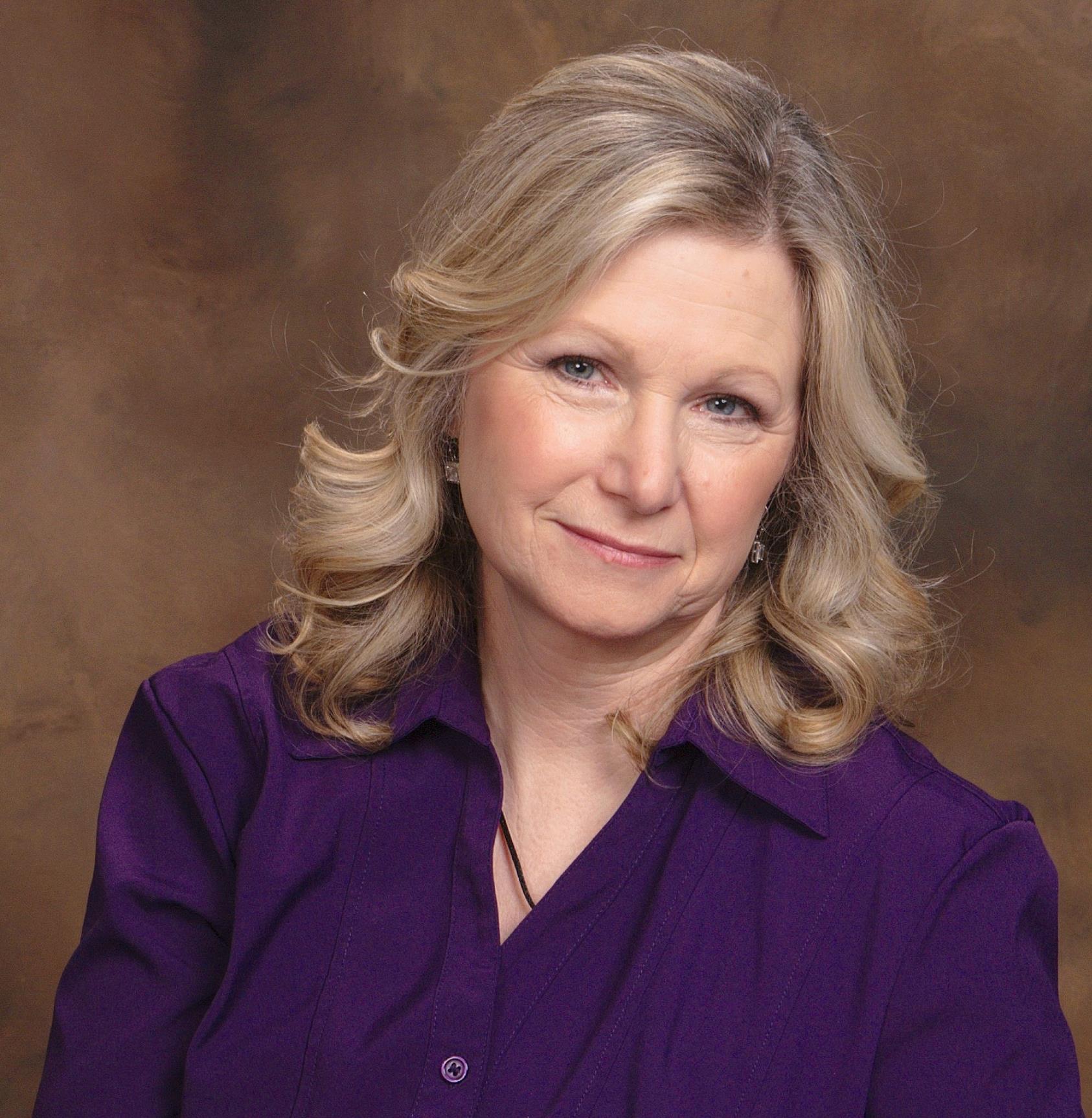 Nancy Christie is the award-winning author of two short story collections: Traveling Left of Center and Other Stories and Peripheral Visions and Other Stories (Unsolicited Press), two books for writers: Rut-Busting Book for Writers and Rut-Busting Book for Authors (Mill City Press) and the inspirational book, The Gifts of Change (Atria/Beyond Words). Her short stories have appeared in numerous literary publications, with several earning contest placements. Nancy Christie is the award-winning author of two short story collections: Traveling Left of Center and Other Stories and Peripheral Visions and Other Stories (Unsolicited Press), two books for writers: Rut-Busting Book for Writers and Rut-Busting Book for Authors (Mill City Press) and the inspirational book, The Gifts of Change (Atria/Beyond Words). Her short stories have appeared in numerous literary publications, with several earning contest placements.
A member of the American Society of Journalists and Authors, and the Florida Writers Association, Christie teaches writing workshops at conferences, libraries and schools. She is also the founder of the annual “Celebrate Short Fiction” Day.
Website: www.nancychristie.com
Blogs
Facebook: https://www.facebook.com/NancyChristieAuthor/
Twitter: https://twitter.com/NChristie_OH
Pinterest: https://www.pinterest.com/nancychristiewr/
Instagram: https://www.instagram.com/nancychristie_author/
YouTube: https://tinyurl.com/NancyChristieOnYouTube
LinkedIn: https://www.linkedin.com/in/nancychristie/
XX
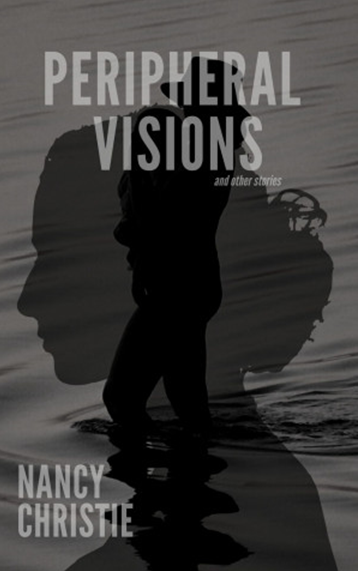 About PERIPHERAL VISIONS AND OTHER STORIES About PERIPHERAL VISIONS AND OTHER STORIES
Publication Date: May 5, 2020
Publisher: Unsolicited Press
Genre: Literary Fiction
What do you do when the hand that life deals you isn’t the one you wanted? In Peripheral Visions and Other Stories, the characters choose to play the best game they can with the cards they’ve received. For some, it’s making the most of the circumstances in which they find themselves, even if it’s not the life they planned. For others, it’s following an unconventional path—not the easiest course or the one that others would take, but the one that’s right for them. But they never lose hope that life will get better if they can just hold on.
Peripheral Visions and Other Stories won second place in the Florida Writers Association 2018 Royal Palm Literary Awards (RPLA) competition, with three of the stories having also earned contest placements.
Buy the book: Peripheral Visions and Other Stories
Bookshop: https://tinyurl.com/yd6cro92
Smashwords: https://tinyurl.com/rks47z6
Barnes & Noble: https://tinyurl.com/yamplxon
Amazon: https://amzn.to/2LSqK4a
Unsolicited Press: https://tinyurl.com/ya5o2dhm
XX
Interview with Nancy Christie
What triggers your story ideas: a character, a setting, plot or dialogue?
Some of my stories are inspired by dreams, while others are the result of overhearing (okay, eavesdropping!) on conversations between strangers. Some stories arise from a technical challenge I set for myself. One (still in progress) is a children’s story about a princess who lost her passion. I wanted to use as many “P” words as I could, preferably ones that were fun to say aloud. Another story, “Still,” is a flash fiction piece using the same word but in its different forms: as an adverb, adjective, conjunction. And then there are others that I have no idea where the ideas for them come from!
Do you have a theme you return to time and again?
Loss and loneliness, the difficulty that people have in navigating through life, the fear of change coupled with the awareness that change will come, whether they want it to or not.
What part of the writing process do you enjoy the most? The least?
When I am writing just for writing’s sake, and the words flow out and they are expressing exactly what is in my mind and heart, or the minds and hearts of my characters. That’s a joy that has nothing to do with money or publication but all to do with fulfillment.
Like most authors I’ve talked to, the marketing is the least enjoyable. While I love interacting with my readers, I am often frustrated by the time-sucking, nuts-and-bolts tasks associated with promoting my books, and never knowing which one will work!
What is your most recent book?
Peripheral Visions and Other Stories is my most recent book. It’s my fifth book and my second short story collection. In a way, the stories in this book are a counterpoint to those in Traveling Left of Center and Other Stories. While the stories in that book are about people who either can’t or won’t take control of their lives, the characters in Peripheral Visions and Other Stories are choosing to play the best game they can with the cards Fate has dealt them, hoping that life will get better if they can just hold on and stay strong.
Tell us an interesting fact or hidden secret about one of the characters that we wouldn’t know by reading the book.
“Waiting for Sara” and “Going Home” are the only two linked stories I have written to date. The first, part of the Traveling Left of Center and Other Stories collection, is told from the viewpoint of the mother. The second, included in Peripheral Visions and Other Stories, is told from the viewpoint of the errant daughter.
Also, I wrote the first draft of “Peripheral Visions” years before either of my parents had developed cancer, but wasn’t able to finish it until after my father’s death in 2015. (I had been his caregiver for several years.) I re-created the character’s road trip from Ohio to St. Augustine to get the geographic details correct, but also found that the trip and the solitude helped me deal with the loss of my father as well.
Excerpt from “Peripheral Visions” from Peripheral Visions and Other Stories
“Shoot.” Lena caught sight of the sign pointing the way to the rest stop off I-77 almost a fraction of a moment too late. She turned the wheel too sharply, causing the right tires of her old Ford Escort to kick up bits of gravel from the shoulder, before she could navigate it safely onto the turnoff.
Shaking slightly, she slowed the car to a more sedate twenty-five-miles per hour before brushing the perspiration from her forehead.
“That was close,” she said to no one in particular. Talking to herself was a habit she had acquired since her mother’s passing. The young think older people talk to themselves because they are going senile. But when there is no one left to talk to, you have to talk out loud. Otherwise, the silence can be deafening. And after decades as a practical nurse where she routinely carried on conversations with patients simply to ease the sterile loneliness of the oncology ward, Lena knew the value of the spoken word even when there wasn’t anyone around to answer.
She glanced up at her rearview mirror, hoping the blue highway patrol car that seemed to be shadowing her since she crossed into West Virginia hadn’t caught her latest misjudgment. That’s all she would need: flashing lights, a request that she show her driver’s license, and then a trip to the police station, where they would no doubt confiscate her car and contact her niece Claire.
Claire. By now, Claire might have figured out what Lena was up to, but she still wouldn’t be sure exactly where her aunt had headed. For who would expect a seventy-two-year-old woman who had never driven beyond the Kingsville city limits to drive the nine-hundred-plus miles from Ohio to Florida?
Not Claire, that’s for sure. Claire would have expected Lena to be looking forward to her move to Golden Glow, to behave as the sane, sensible, and highly responsible maiden aunt she had always been.
“Not this time, though,” Lena said aloud, as she checked the parking area for other cars, including any with the telltale light bar mounted on the roof and distinctive twin gold stripes on the side, before pulling into a parking spot. “For once in my life, I’m going to do what I want to do, instead of walking a straight line right up to the end.”
That’s the biggest problem with the world today, she thought as she gingerly slid out of the car, carefully stretching her back to work out the kinks. The pain that had plagued her shoulder was even worse than usual this morning, undoubtedly aggravated by too many hours behind the wheel.
She moved her body slowly, continuing her conversation aloud. “People walk around with blinders on just like horses, their eyes glued on the goal, the ‘Big Picture.’ There’s no sidestepping, no walking off the beaten path, no road less traveled. You get ahead that way, it’s true. But what if where you end up isn’t where you should have gone?”
The West Virginia sunshine was welcoming and a darn sight better than the freezing northeast weather she had left behind almost four hours earlier. A wet, sleety snow had made the driving more than a little challenging, especially once she got on the interstate and had to contend with all the tractor-trailers that were crowding the roadway.
It wasn’t until she had approached the Marietta–Williamstown Interstate Bridge that would take her over the Ohio River and into West Virginia that the weather improved and the horizon looked brighter. Lena didn’t usually believe in omens but this time she took heart in the fact that across the border the sun was shining, the snow was non-existent, and that it would be a warmer, better place than the one she had left.
And now, safe in another state, even her back felt better—well, at least, compared to how it had felt all winter long. Of course, she knew that nothing would make it feel completely fine. Even the pills only dulled the edge of the pain, never relieving it entirely.
That’s really what decided her on this trip. She was afraid that if she waited any longer, either her nerve or her body would betray her and she would spend what was left of her time—three months, maybe less, she judged—in the fluorescent confines of the nursing home or hospital.
The whole time her niece Claire was talking—laying out stage after stage for her aunt as though Lena couldn’t put two and two together and end up with four—Lena’s mind flashed to tantalizing pictures of a bit of sand and sparkling water. It looked mighty appealing to her, especially since she was tired of shoveling snow from the driveway before she could leave the house. It was a good car, even if it was as old as dirt, and she thought it deserved better than to have its fenders frozen off for weeks on end.
For that matter, so did she.
Sunday, May 24 2020
VIRTUAL AUTHOR VISIT WITH KATHLEEN KELLEY REARDON
 Kathleen Kelley Reardon is professor emerita of business and preventive medicine at the University of Southern California. She has published ten nonfiction books and two crime mysteries. She draws upon her research on gender issues, love of crime mysteries and knowledge of the academic underworld for both Shadow Campus (2013) and Damned If She Does (2020). She keeps herself guessing as to who-done-it, so the reader is unsure right to the end. Kathleen is also an artist and her work is at www.paintingdoc.com and her Facebook page. Kathleen Kelley Reardon is professor emerita of business and preventive medicine at the University of Southern California. She has published ten nonfiction books and two crime mysteries. She draws upon her research on gender issues, love of crime mysteries and knowledge of the academic underworld for both Shadow Campus (2013) and Damned If She Does (2020). She keeps herself guessing as to who-done-it, so the reader is unsure right to the end. Kathleen is also an artist and her work is at www.paintingdoc.com and her Facebook page.
X
Blog URL: www.kathleenkelleyreardon.com
Twitter: https://twitter.com/kathreardon @kathreardon
Facebook: https://www.facebook.com/kathleenkelleyreardon/
Instagram: https://www.instagram.com/kathchrisrn kathchrisrn
X
X
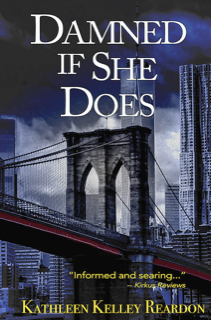 About DAMNED IF SHE DOES About DAMNED IF SHE DOES
Publication date: January 24, 2020
Publisher: Big Table Publishing
Genre: crime mystery
Young professor Meg Doherty has long held a dark secret. When a renowned professor is viciously murdered at a Manhattan hotel conference, Meg stumbles upon the scene and quickly becomes a prime suspect. Caught in NYC’s blinding media spotlight, gilded society and criminal underworld, Meg and her brother, Shamus, risk their lives to prove her innocence.
Forbes described Shadow Campus as a “fast-paced” and “masterful debut.”
Kirkus Reviews found Damned If She Does “informed and searing” and a “page-turning success”
Buy the book: Damned If She Does
Amazon: https://www.amazon.com/Damned-She-Does-Kathleen-Reardon-ebook/dp/B0844PJLNX/ref=sr_1_1
≈
Backstory for DAMNED IF SHE DOES
Damned If She Does (2020) by Kathleen Kelley Reardon
As a child, I loved art and writing. A truly wonderful Bunnell High School English teacher, Judith Kase, saw promise and creativity in my writing and encouraged both. For five years, I taught high school English in South Windsor and Stratford, Connecticut. Having also studied communication at the University of Connecticut, my career path took me on to an MA and Ph.D. at UMass, Amherst. As a newly minted professor in my twenties, I published research papers and my first of ten nonfiction books, Persuasion in Practice (Sage). It’s still in print today.
Fiction took a back seat to research and writing, tenure and promotion. So, it wasn’t until my forties that I returned to it. Experiences as a female academic seeking tenure at a business school inspired me to begin writing Shadow Campus – my first crime mystery. Publication came years later. With three children and on route to full professor, there was little extra time. But I came back to the manuscript during the summers.
I was writing Damned If She Does long before the MeToo era began. Meg, one of two lead characters, keeps a dark secret until she stumbles upon the dead body of the man who caused it all and quickly becomes the prime suspect. Four characters from Shadow Campus return in this second crime mystery, which I anticipate becoming part of a trilogy. The first book took place in L.A, the second in New York City, and the third, now partially written, will be situated in West Cork Ireland.
Interview with primary character, Shamus Doherty
Kathleen: Shamus, I’m delighted that you’re here. I know you’re a private person. Let’s start there. You finally said yes to this interview on the fourth try.
Shamus: You’ve put me in two novels. I guess you could say my life is no longer my own. Besides, my sister can’t seem to shake the notion that her brother is an introvert whose love life won’t blossom until he opens up. J.
Kathleen: Any other reason?
Shamus: (smiling) Maybe I’m just a little worried about what you’ll write about me in the third book.
Kathleen: At this point, I may have little wiggle room. Our readers know you as well as I do. Some tell me what you’ll do next.
Shamus: You reap what you sow.
Kathleen: Let me ask you this: You’ve stolen the hearts of many female readers. They describe you as a “diamond in the rough.” What’s your response to that?
Shamus: Detective Jeffries says any charm I might have is wasted – that I’m oblivious to women noticing me.
Kathleen: Do you think he has a point?
Shamus: I think he’s just grumpy.
Kathleen: He is that. So, tell me, in book three you’ll be in Ireland. Are you looking forward to that?
Shamus: I’m not much for travel, but my Irish roots go way back. I think we can tell Meg that I’m branching out.
Kathleen: She’s going along, isn’t she?
Shamus: Yep. She’s been there many times and loves it, especially West Cork.
Kathleen: You’re becoming quite the amateur detective. Is that something you plan to turn into a career?
Shamus: It’s born of necessity. My dream is building beautiful homes. Maybe someday a degree in architecture.
Kathleen: I guess we’ll see.
Shamus: (Smiling) Unless you want to tell us now.
Kathleen: Thank you for being here, Shamus.
Shamus: Ah, you’re keeping it a secret. I knew it.
Kathleen: One last thing, Shamus. Is Denise in your future?
Shamus: She’s in my present. That’s really all I can say.
Excerpt from DAMNED IF SHE DOES
Damned If She Does is based in New York City. As Covid-19 continues to bring great pain there, here are two excerpts reminding us of the city’s unique beauty:
z
When they left MOMA, it was dark and lightly snowing. Meg’s cheeks reddened from the cold; her eyes brightened. Rashid breathed in Manhattan’s icy magic. Leafless tree branches adorned with miniature white lights, obscure an hour earlier, now reached their glowing branches skyward like secondary characters boldly stealing the show. Cars and taxis moved rhythmically, cooperatively. Buildings glistened. Rainbow hued pigeons, heads bobbing, dexterously scurried and fluttered in a precarious dance with preoccupied pedestrians.
“No place quite like it,” Shamus said.
Rashid slowly nodded as he looked up transfixed by snowflakes bright against the darkening sky, some joining like starlings in harmonic formations, upward and downward, inward and outward, as if having practiced together for years …
Z
Shamus stopped in front of the Plaza Hotel. His parents had taken him and Meg there on pre-Christmas sojourns to see the decorations and to enjoy a brunch memorable for the steaming hot chocolate poured by fastidious waiters from gleaming silver, long-stemmed pots. He and Meg had looked forward to the annual pilgrimage almost as much as Christmas morning. It was a tradition of indulgence, a harbinger of more pleasures to come, costly for his parents, but one of exquisite happiness until things had gone sour between him and his father…
Crossing the street beside the hotel brought him into Central Park. A few minutes later, he was at the skating rink. He wiped snow from a bench and sat watching skaters glide and spin as his mind wrestled with how his sister had been nearly present for two murders. He’d have to shop around for a top-notch lawyer. The one he’d found would do for tonight. She seemed sharp enough in the few minutes they’d had to talk. But things were going from bad to worse, and Meg needed a shark.
Shamus purchased a hot chocolate, held it tight to warm his hands, and breathed in the rich, sweet distraction. He watched a woman twirl on one skate in the center of the rink and then began to make his way back to the hotel. Continuing along the park, cross-country skiers were taking to the roads now nearly clear of traffic. Another hour and the city would be pedestrians only, dodging the occasional determined plow. He looked up to find where John Lennon had lived and tragically died. Snow caressed the park trees, bordered and bejeweled the stone bridges, here and there spinning in mini tornadoes, as if this was perhaps its final show before bequeathing the stage to the colors of spring.
He shivered. The temperature was dropping. Reality was creeping back. His phone pinged: Meg texting that she’d meet him at the hotel. Couldn’t stay there another minute, she wrote. Okay, he texted back. See you there. He’d planned to talk with the lawyer, but that would have to wait.
Reaching the edge of the park, he looked back one more time to watch children rolling in the snow beneath street lamps, young adults making snow angels, throwing snowballs and playing Frisbee. Someday, he thought, on a night like this, maybe, just maybe, I’ll bring someone special here.
Saturday, May 16 2020
 For May, our Round Robin Blog is all about editing. All books go through multiple edits. What have your learned are your problems, and what irks you about editing? For May, our Round Robin Blog is all about editing. All books go through multiple edits. What have your learned are your problems, and what irks you about editing?
XX
XX
There are several rounds of editing for any writer. Each serving a different purpose. For me, one kind of editing 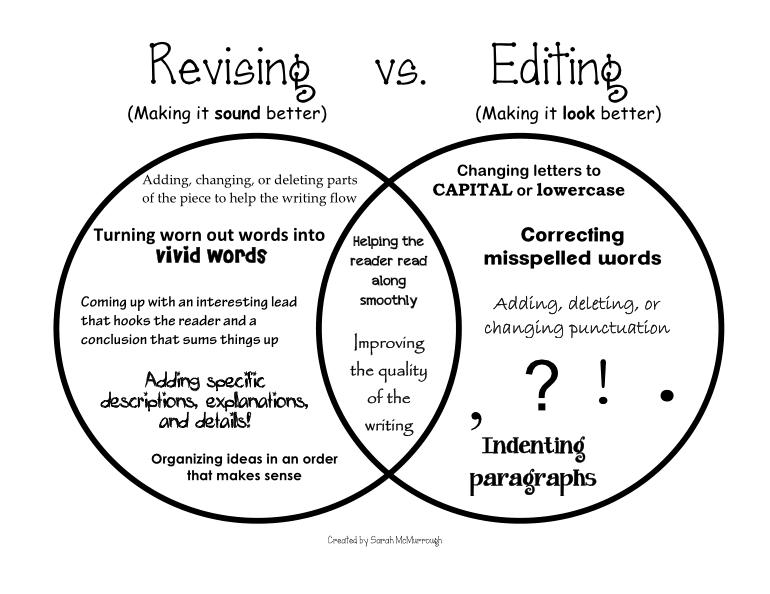 goes on during the writing of the story. I realize in Chapter 5 that the kid in chapter 2 can’t be five years old, he has to be closer to nine or ten so I go back to change it. Or my hero couldn’t have joined the Army in 2009 because based on his birthday, he’d have been fourteen when he went to West Point. Although some folk keep a running log for this kind of change, I generally take a moment to go fix it when I realize the inconsistency. In the writing of a mystery I might discover some clue that needs to be hinted at or foreshadowed earlier. Again, I could just keep a log and do it later, but I prefer to go back and fix it now because the story “feels” like it is flowing better when I know it’s been fixed and I know how I fixed it so references to that fix are more natural. The same thing would apply if I discovered that my heroine had some trauma in her past that informs her decisions and actions now. I feel totally compelled to haul out her dossier (a separate document) and add that whole sad, traumatic event, how it affected her then, how she overcame it, and how it changed her life going forward. Now I return to the point where I realized this lurking in her past and I have a far better idea what should be happening now. goes on during the writing of the story. I realize in Chapter 5 that the kid in chapter 2 can’t be five years old, he has to be closer to nine or ten so I go back to change it. Or my hero couldn’t have joined the Army in 2009 because based on his birthday, he’d have been fourteen when he went to West Point. Although some folk keep a running log for this kind of change, I generally take a moment to go fix it when I realize the inconsistency. In the writing of a mystery I might discover some clue that needs to be hinted at or foreshadowed earlier. Again, I could just keep a log and do it later, but I prefer to go back and fix it now because the story “feels” like it is flowing better when I know it’s been fixed and I know how I fixed it so references to that fix are more natural. The same thing would apply if I discovered that my heroine had some trauma in her past that informs her decisions and actions now. I feel totally compelled to haul out her dossier (a separate document) and add that whole sad, traumatic event, how it affected her then, how she overcame it, and how it changed her life going forward. Now I return to the point where I realized this lurking in her past and I have a far better idea what should be happening now.
XXX
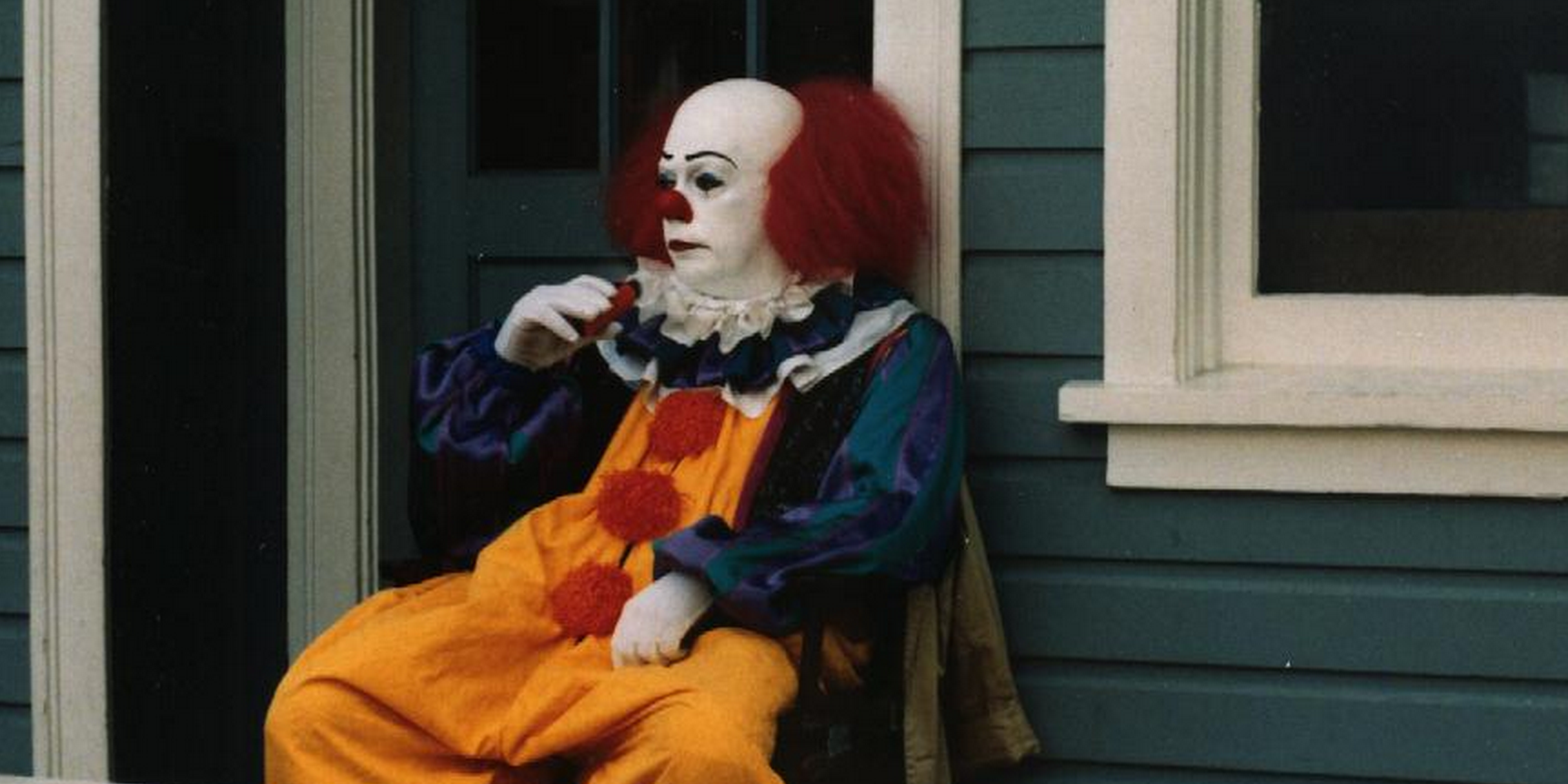 My next edit/revision comes after my critique partner(s) have sent my chapter(s) back with their comments. They might find some inconsistency I missed, or ask a question I should have asked before because I have no idea what the answer is or should be. They also pick up things like passive voice, dialog that doesn’t sound right to them, backstory or info dumps, or characters who are acting OUT of character – at least out of character as I have portrayed them up to now. This kind of editing and revision might be after the entire book is complete, but for most of the critique relationships I’ve been in, this is ongoing while writing the story. I have to weigh their comments against what I know about my characters and my plot. Most times they point out things I should have seen but didn’t – a matter of seeing the forest for the trees, thing. But I might also dismiss a comment because I know it gets answered later, or because I know in my gut it does not fit the character or the plot. Critique partners also pick up on missing beats, confusing dialog – My next edit/revision comes after my critique partner(s) have sent my chapter(s) back with their comments. They might find some inconsistency I missed, or ask a question I should have asked before because I have no idea what the answer is or should be. They also pick up things like passive voice, dialog that doesn’t sound right to them, backstory or info dumps, or characters who are acting OUT of character – at least out of character as I have portrayed them up to now. This kind of editing and revision might be after the entire book is complete, but for most of the critique relationships I’ve been in, this is ongoing while writing the story. I have to weigh their comments against what I know about my characters and my plot. Most times they point out things I should have seen but didn’t – a matter of seeing the forest for the trees, thing. But I might also dismiss a comment because I know it gets answered later, or because I know in my gut it does not fit the character or the plot. Critique partners also pick up on missing beats, confusing dialog –  who’s speaking or acting. This could easily be fixed in the next edit and often is, but depending on where I am emotionally in my story, I might decide to fix these places now. who’s speaking or acting. This could easily be fixed in the next edit and often is, but depending on where I am emotionally in my story, I might decide to fix these places now.
XXX
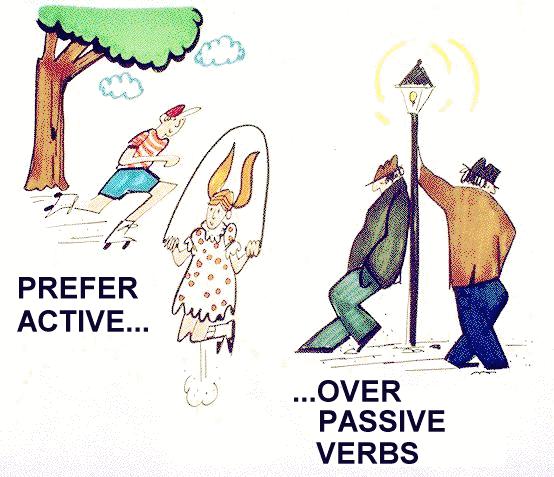 Then there’s the first big edit when I click on “Find” and look for all those pesky words I over use. Everyone has such a list. Mine includes anything ending with ING or words like really. was, well, said, and others. ING words mean the telling is passive and any time I can switch it up to active makes the writing stronger. Bret strode past the gas pump, instead of Bret was walking past the gas pump. A tall man wearing a Bruins jersey changed to A tall man in a Bruins Jersey. I was looking at my phone, placing a call… is much stronger if I punched in the number and waited impatiently. Of course, in this example I’d also change that waited impatiently which is telling into I punched in the number and drummed my fingers on the desk which shows action and impatience. The point of this exercise is to remove all those words and phrases that I overuse. And as a by-product see the weaker telling phrases and reword to show instead. This is where I look for all the grammar errors and missing or misplaced punctuation. Then there’s the first big edit when I click on “Find” and look for all those pesky words I over use. Everyone has such a list. Mine includes anything ending with ING or words like really. was, well, said, and others. ING words mean the telling is passive and any time I can switch it up to active makes the writing stronger. Bret strode past the gas pump, instead of Bret was walking past the gas pump. A tall man wearing a Bruins jersey changed to A tall man in a Bruins Jersey. I was looking at my phone, placing a call… is much stronger if I punched in the number and waited impatiently. Of course, in this example I’d also change that waited impatiently which is telling into I punched in the number and drummed my fingers on the desk which shows action and impatience. The point of this exercise is to remove all those words and phrases that I overuse. And as a by-product see the weaker telling phrases and reword to show instead. This is where I look for all the grammar errors and missing or misplaced punctuation.
XXX
 My books next go to a “Beta” reader. Someone I trust, who is comfortable being totally honest with me about their reaction to the characters, plot, dialog and action. It’s a fresh set or two or three of eyes reading for pleasure, not editing for errors. Then they give me more general comments. Along the lines of “I really liked the twins but to be honest, I can’t figure out why Bob did that. It’s just so out of the blue. A comment like this means one of two things. 1) I knew something about my character that I failed to give the reader a clue about, or 2) it was totally out of the blue and not consistent with the character. Other things a beta reader might say: “Teenagers don’t talk like Susie does in this book. You should spend an afternoon with a friend who has teenagers and listen to them talking for a while, then fix this.” Or “You put this character in the story who has Alzheimers and most of the time you did a good job of portraying what it’s like to live with someone like this, but in chapter 13 this woman remembers way too much detail about what happened the day before. Alzheimer’s patients can often recall details from forty years ago, but can’t remember what they ate for breakfast so this just didn’t work for me.” My books next go to a “Beta” reader. Someone I trust, who is comfortable being totally honest with me about their reaction to the characters, plot, dialog and action. It’s a fresh set or two or three of eyes reading for pleasure, not editing for errors. Then they give me more general comments. Along the lines of “I really liked the twins but to be honest, I can’t figure out why Bob did that. It’s just so out of the blue. A comment like this means one of two things. 1) I knew something about my character that I failed to give the reader a clue about, or 2) it was totally out of the blue and not consistent with the character. Other things a beta reader might say: “Teenagers don’t talk like Susie does in this book. You should spend an afternoon with a friend who has teenagers and listen to them talking for a while, then fix this.” Or “You put this character in the story who has Alzheimers and most of the time you did a good job of portraying what it’s like to live with someone like this, but in chapter 13 this woman remembers way too much detail about what happened the day before. Alzheimer’s patients can often recall details from forty years ago, but can’t remember what they ate for breakfast so this just didn’t work for me.”
XX
 Another thing both Beta readers and critique partners might say is “Where’s the hook?” I could have put this book down so easy, either at the end of a specific chapter or throughout the book. This means I have not thoroughly ramped up the tension in that chapter, or have not kept the tension and conflict growing throughout. I have not left an unanswered question at the end of a chapter or put my protagonist on the edge of a cliff so the reader is compelled to keep turning pages even when it’s one o’clock in the morning. Another thing both Beta readers and critique partners might say is “Where’s the hook?” I could have put this book down so easy, either at the end of a specific chapter or throughout the book. This means I have not thoroughly ramped up the tension in that chapter, or have not kept the tension and conflict growing throughout. I have not left an unanswered question at the end of a chapter or put my protagonist on the edge of a cliff so the reader is compelled to keep turning pages even when it’s one o’clock in the morning.
XXX
My biggest problem with editing and revising is I constantly see things I think I need to tweak. I do love my thesaurus and always seem to think there might be a better word for this particular place. Or my character is speaking and I keep rewording their dialog. Eventually I have to get tough with myself and just put the book to bed. Or more accurately send it off to my acquiring editor (for traditionally published books) or my copy editor for my indie books. Doesn’t mean I’m done yet because it will come back and there will be yet more things to fix. But by now I am so ready to move on, and 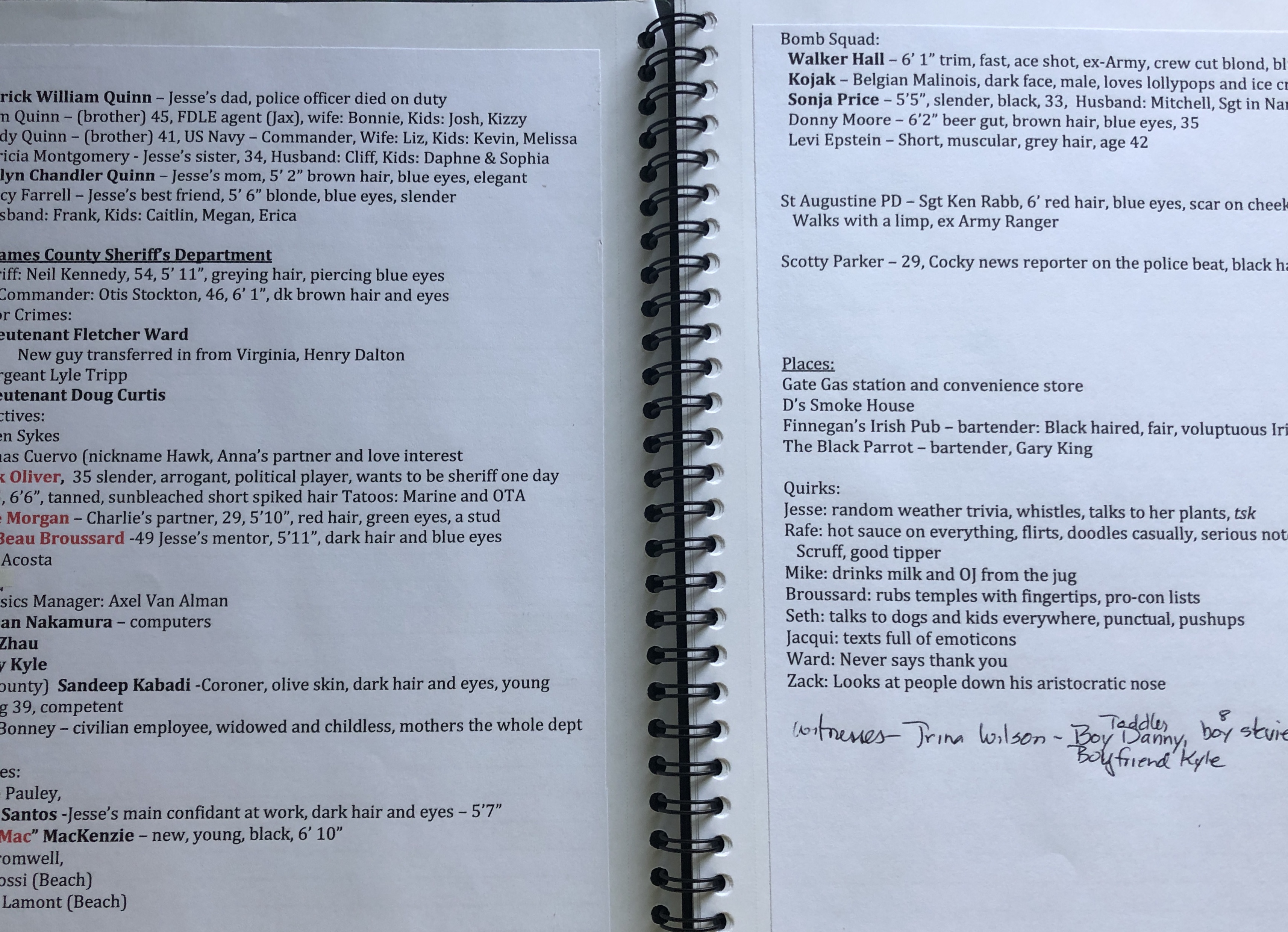 might already be well into the next book so I’m far less likely to get nit-picky, and far more likely to just make the requested changes before sending it off for formatting and publishing. might already be well into the next book so I’m far less likely to get nit-picky, and far more likely to just make the requested changes before sending it off for formatting and publishing.
XXX
So, what have I learned and what irks me? I’ve learned how to spot passive tense. Telling instead of showing pops out at me far easier now. I’ve learned to keep a running list of things that need fixing later if waiting won’t impact what I’m writing now. And the biggest thing editing has taught me is to ALWAYS have a Bible. Always have a list of characters with basic physical characteristics, family, friends, what car they drive etc. Even for a stand-alone because I don’t want my hero’s mother to have blue eyes and drive a red pick-up truck in chapter one and have gray eyes and drive a Camaro in chapter fifteen. Worse, I don’t want to get to chapter fifteen and can’t remember what some bit character looked like and have to go back, combing  through 50,000 words or more to find the answer. It just makes life easier. Also, as I’m writing, if I add, or should say, AS I add characters in the process of writing, I go back and add that character to my Bible. I might not think he’s going to show up again, but if I didn’t add him, he surely would. It’s even more important to have a Bible for a series so all the main players, places, etc, are consistent. Another thing I’ve found is helpful, that I learned while editing is to have a time-line. So things fit relative to time. My characters are the right age, events in their lives are consistent with both the world they live in and their ages and any “real” events in the world are appropriately set in the story. (How many books have some connection to 9/11? Or other similarly familiar events need to fit.) through 50,000 words or more to find the answer. It just makes life easier. Also, as I’m writing, if I add, or should say, AS I add characters in the process of writing, I go back and add that character to my Bible. I might not think he’s going to show up again, but if I didn’t add him, he surely would. It’s even more important to have a Bible for a series so all the main players, places, etc, are consistent. Another thing I’ve found is helpful, that I learned while editing is to have a time-line. So things fit relative to time. My characters are the right age, events in their lives are consistent with both the world they live in and their ages and any “real” events in the world are appropriately set in the story. (How many books have some connection to 9/11? Or other similarly familiar events need to fit.)
XXX
 What irks me? Not a whole lot. Editing has always, always made my books stronger than they were before the editing at any stage in the writing. Editing is my friend. It makes me a better writer and my story more compelling. And Please! If you are an indie author – get your book professionally edited. Once you’ve spent so many hours, so much sweat and tears, put so much of your heart into this story, your eyes will betray you as you read over it for errors and you won’t see them. Nothing is more irritating that diving into a really great story with a compelling premise and plot and being constantly tripped up by misspelled words, errors in grammar and inconsistencies of character and time. No one has as much time to read as they’d like and with so many good books out there to choose from, they’ll put your badly edited book aside and move on. Worse, they likely won’t come back to purchase another one either. What irks me? Not a whole lot. Editing has always, always made my books stronger than they were before the editing at any stage in the writing. Editing is my friend. It makes me a better writer and my story more compelling. And Please! If you are an indie author – get your book professionally edited. Once you’ve spent so many hours, so much sweat and tears, put so much of your heart into this story, your eyes will betray you as you read over it for errors and you won’t see them. Nothing is more irritating that diving into a really great story with a compelling premise and plot and being constantly tripped up by misspelled words, errors in grammar and inconsistencies of character and time. No one has as much time to read as they’d like and with so many good books out there to choose from, they’ll put your badly edited book aside and move on. Worse, they likely won’t come back to purchase another one either.
XXX
Want to see how these other writers square up to the process of editing their books? Hop on over and check them out.
Diane Bator
Connie Vines
Victoria Chatham
Beverley Bateman
Anne Stenhouse
Margaret Fieland
Dr. Bob Rich
Rhobin L Courtright
Sunday, May 10 2020
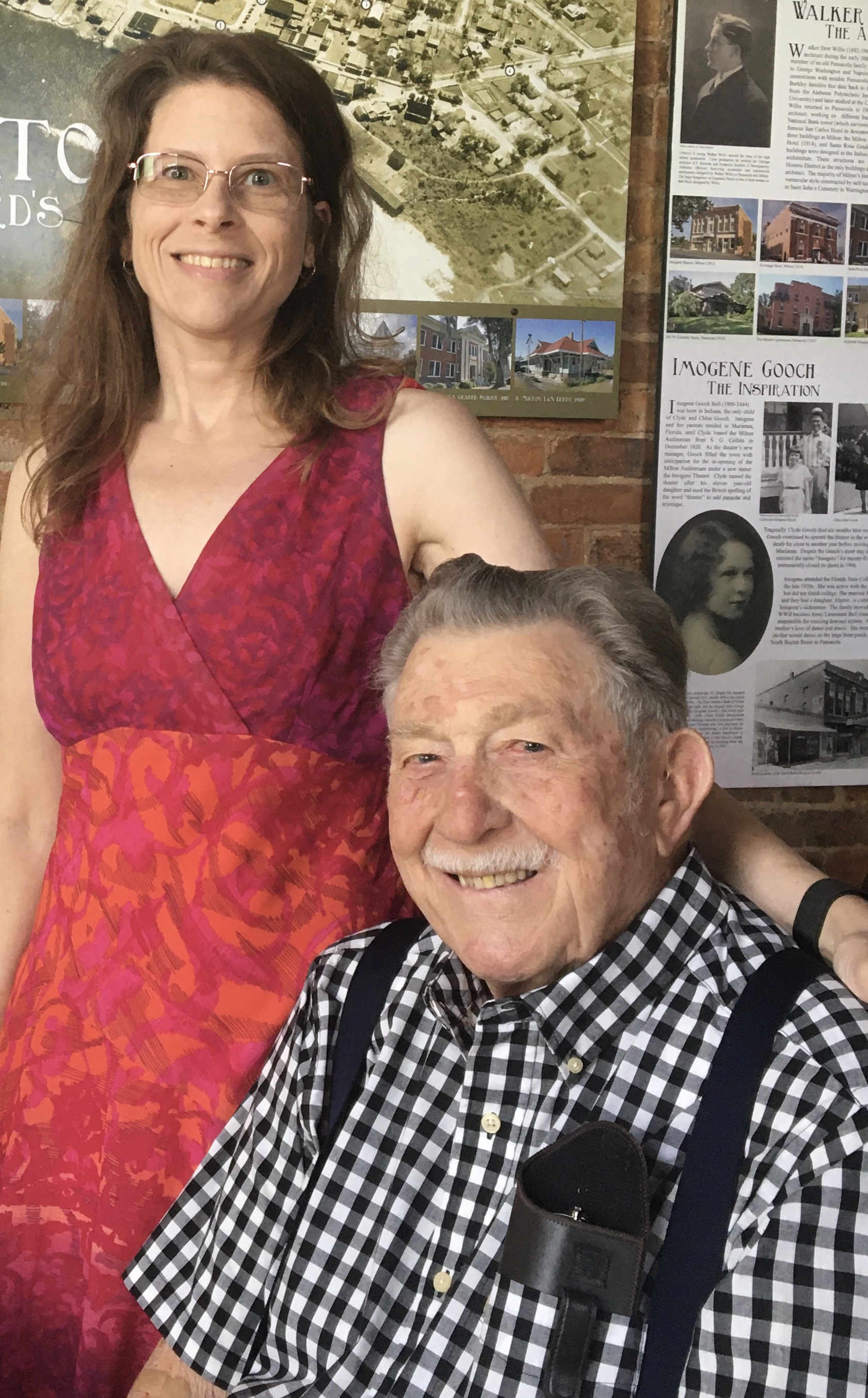 VIRTUAL AUTHOR VISIT WITH DANA SKORNIA VIRTUAL AUTHOR VISIT WITH DANA SKORNIA
Dana Skornia lives in Jacksonville, FL with her husband and two children, and this is her first venture into writing fiction. She wrote the book with her father, JL Broxson, who lives in Milton, FL, where Dana and most of her relatives are from. She and her father have always been interested in the family history and genealogy of the Broxson family, and he’s always told her stories of the many people who have graced their heritage and of the friends who made their lives interesting fodder for the book.
X
X
Blog URL: https://awinterssecrets.blogspot.com/
Goodreads: https://www.goodreads.com/book/show/51479541-a-winter-s-secrets
X
X
About A WINTER’S SECRETS
Publication date: January 2020
Publisher: Kindle Direct Publishing
Genre: Historical Fiction
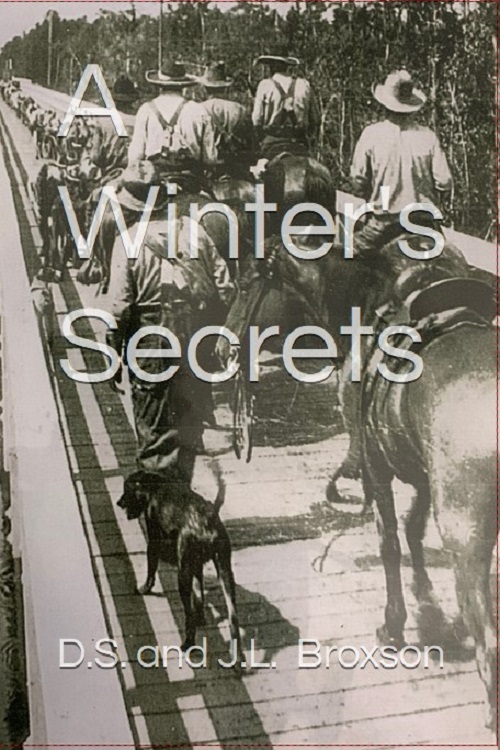 This is a post-Civil War family saga, based loosely on the author’s ancestral heritage and other historical accounts of rural life in Florida after the slaves had been freed. The story follows the emotional journeys of each person involved in a love triangle and develops gracefully and powerfully as they adapt to each other, and come to terms with new family dynamics – for better or for worse. The plot has several interesting twists, a few tense moments where things could go either way, some emotional turmoil, and many kind deeds and encouraging moments. This is a post-Civil War family saga, based loosely on the author’s ancestral heritage and other historical accounts of rural life in Florida after the slaves had been freed. The story follows the emotional journeys of each person involved in a love triangle and develops gracefully and powerfully as they adapt to each other, and come to terms with new family dynamics – for better or for worse. The plot has several interesting twists, a few tense moments where things could go either way, some emotional turmoil, and many kind deeds and encouraging moments.
A Winter’s Secrets has been submitted to Florida Writer’s Association Royal Palm Literary Awards Competition
Buy the book: A Winter’s Secrets
Reedsy: https://reedsy.com/discovery/book/a-winter-s-secrets-d-s-j-l-broxson
Amazon: https://www.amazon.com/Winters-Secrets-D-S-J-L-Broxson-ebook/dp/B084796RQT/ref=sr_1_3?dchild=1&keywords=a+winters+secrets&qid=1587845529&sr=8-3
Barnes & Noble: https://www.barnesandnoble.com/w/a-winters-secrets-jl-broxson/1136126633?ean=9781078779517
X
X
X
Interview with Dana Skornia
Why did you start writing —what triggered your writing?
Dad called me one day and asked if I had a novel in me, and I said I thought I did. He and I have always been interested in the histories of the people in our heritage and he’s told me many stories over the years about how he grew up, people he knew, and what their lives were like. We agreed that I’d record him telling about those stories, and I used them to create a fictional tale, using many of the circumstances but envisioning what might have been, and crafting a plot and story line around them.
What does the act of writing bring into your life? Why do you want to write?
In the beginning I had an audience of one, because the only person I was writing for was Dad. I wanted him to have a story that he would enjoy reading, one that would have meaning and relevance for the time and people that he grew up knowing, and would resonate with what he knew to be true about the era and the people who lived in the early 1900s. As I continued I hoped it would be one that anyone might enjoy, and I wanted to share the story with others.
How long did it take you to write your book? How many rewrites did it go through?
I sent chapters to Dad as I finished them, and it took a few re-writes of the first three or four chapters to really feel as though I had something worth continuing. Once I got started, though, I found that the characters didn’t always behave the way I thought they should, but they also became more real to me as I started fleshing them out and determining who they really were.
Is this your first book? Your first fiction book?
This is the first book I’ve ever tried to write, although many people have told me I need to write a book and I had a blog going for a few years when my children were younger. I enjoyed writing it and wish I could afford to do nothing but write, as I thoroughly enjoyed the process and feel like I’ve got a few more “novels” in me.
Tell us an interesting fact or hidden secret about one of the characters that we wouldn’t know by reading the book.
When my father was young he had an aunt that would tease him and call him little Lester Leroy, and Dad always found that a little funny and a little offensive at the same time, and I knew at the end I wanted to make him laugh, so I put the conversation between Bud and Annie in the book about naming the baby that. Also, when I describe the nativity play that the children put on at Christmas time, I made a reference to a play in years past where the angel was stuck in the tomb and couldn’t get out.
That actually happened to my husband Dallas when he was a teenager in a church play, where the wings he was wearing were too big to get through the opening of the “tomb” they had constructed on stage and from where he was supposed to emerge and sing a song. Unfortunately for him he had to stay hidden in the tomb and just sing the song from where he was stuck, and it’s something he’s laughed about ever since.
Sunday, May 03 2020
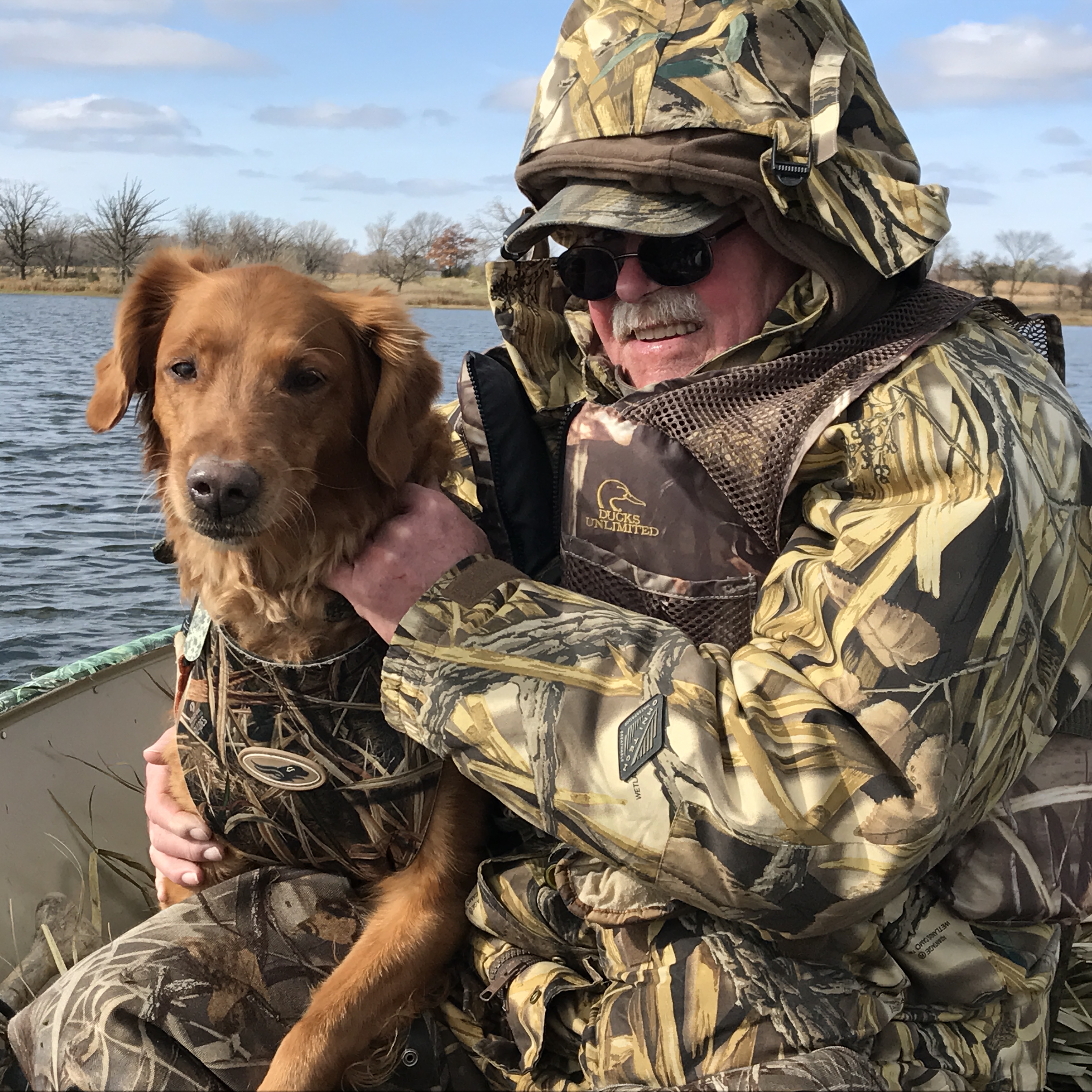 Christopher G. Bremicker was a Green Beret medic stationed at Ft. Bragg NC from 1968 to 1970. He has a BA in English and a Master’s in Business Administration, both from the University of Minnesota. He is a newspaperman, downhill skier, and grouse hunter. He plays handball and reviews theater. He is a sales associate at Walgreen’s in St. Paul, MN, his forty-sixth job since high school. His hometown is Cable, WI. He has won awards from Veterans Voices Writing Project Inc. from the VFW, and the American Legion. Christopher G. Bremicker was a Green Beret medic stationed at Ft. Bragg NC from 1968 to 1970. He has a BA in English and a Master’s in Business Administration, both from the University of Minnesota. He is a newspaperman, downhill skier, and grouse hunter. He plays handball and reviews theater. He is a sales associate at Walgreen’s in St. Paul, MN, his forty-sixth job since high school. His hometown is Cable, WI. He has won awards from Veterans Voices Writing Project Inc. from the VFW, and the American Legion.
X
X
Website URL: http://www.unsolicitedpress.com/store/p274/Bremickermemoir.html
Blog URL: www.livingwellwhilementallyill.com
Facebook: https://www.facebook.com/cbremicker
YouTube: https://youtu.be/hnmfAK9L0qQ
XX
XX
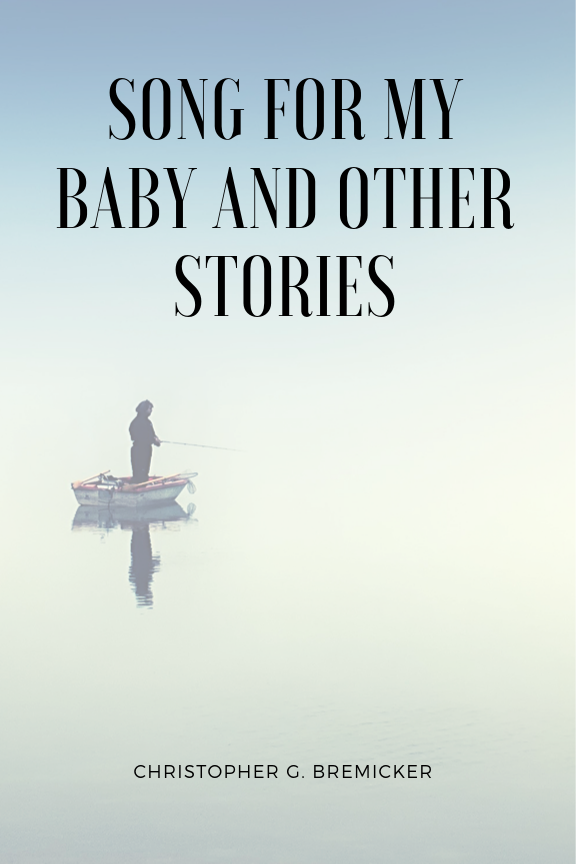 About Song for My Baby and Other Stories About Song for My Baby and Other Stories
Publication date: June 16, 2020
Publisher: Unsolicited Press
Genre: Hybrid, fiction, nonfiction, memoir
Song for My Baby and Other Stories is best described as a work with great variety. What begins with the sudden demise of a father on a hunting trip, transforms into a collection that deals with mental illness, hitting bottom, and an appreciation for those who stick around in the worst of times. Bremicker takes readers for a ride with no degree of certainty. From a high stakes golf game to pay off a son’s cocaine debt, a dating service that results in twelve dates in twelve months, a kidney transplant, a heart attack, a relapse on alcohol, to years in and out of psych wards and veterans’ homes, the book shifts gears from story to story.
Buy the book: Song for My Baby and Other Stories
Unsolicited Press: www.unsolicitedpress.com
X
X
X
Interview with Christopher G. Bremicker
What does the act of writing bring into your life? Why do you want to write?
I don’t want to write. I can’t help it. At a dinner party, James Thurber’s wife looked at him and told him to stop writing. I’m like that. I do it subconsciously.
Do you have a favorite writing space or a place you go to for inspiration?
I need to be around people to write, like a coffee shop or the community room in my hi-rise. Many writers like to write in solitude. I can’t stand it. I draw energy from a crowd and concentrate better when there’s commotion.
Do you have any writing totems? Superstitions? Strange routines?
I never talk about work in progress. It’s bad luck and invariably kills the story and the creative juices. I won’t even tell my psychologist. I’ve experimented with this theory and it’s true. I keep my mouth shut.
What is your most recent book and what inspired it?
Song for My Baby and Other Stories—inspired by my recovery from a heart attack and mental illness. It is a compilation of stories that a Dutch journalist and friend of mine liked. He was knighted by the Queen of Holland for his work also as a literary critic and his judgment is impeccable. I am highly prolific, and the book is my best stuff.
What is the message of your book? What do you want readers to come away with after they read your book?
Mental illness can be overcome with hobbies that give a person a life worth living. You’re living in Hell, might as well enjoy it and have something to look back on, if you ever make it to a semblance of health.
Tell us an interesting fact or hidden secret about one of the characters that we wouldn’t know by reading the book.
The greatest handball player in the world is me. I’m the worst player in our handball league but have the greatest of the game’s personality. Booze, women, and cigarettes, although I quit all three.
|